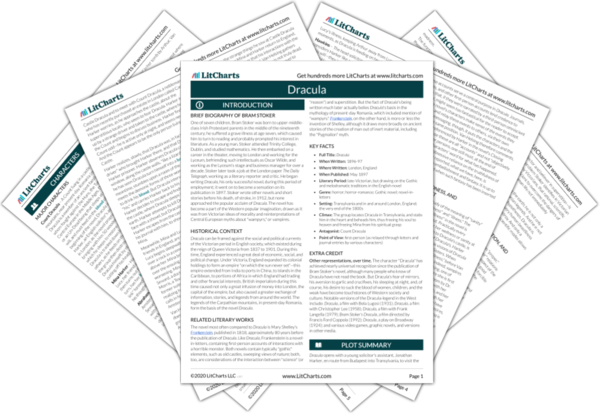LitCharts assigns a color and icon to each theme in Dracula, which you can use to track the themes throughout the work.
Writing, Journaling, and Messaging
Illness, Madness, and Confinement
Christianity, Science, and the Occult
Romantic Love, Seduction, and Sexual Purity
Life, Death, and the Un-Dead
